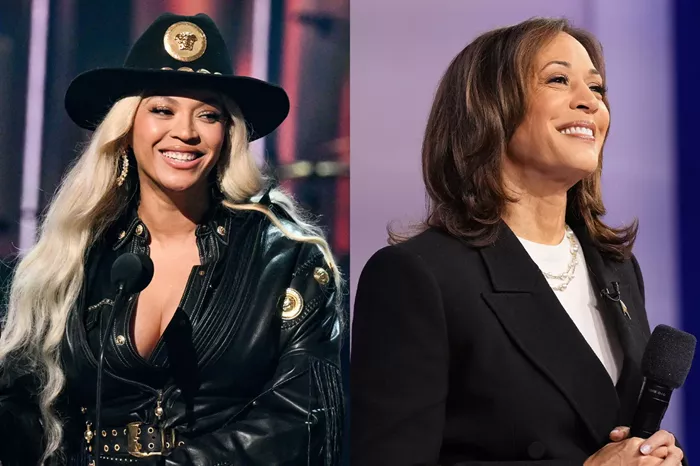Back in July, pop star Charli XCX tweeted a brief, three-word post: “Kamala IS Brat.” Many speculated that this would be the endorsement to ignite Kamala Harris’s campaign, distinguishing her with energy and authenticity. Charli’s hit album Brat, featuring a mix of synth-pop and bold, rebellious lyrics, was emblematic of youthful defiance, an association Harris’s team eagerly leaned into by adopting the album’s neon green aesthetic for campaign branding. The message was clear: Harris, unlike her predecessor Joe Biden, was the candidate of vibrant change.
But despite this pop-culture boost and an array of star-studded endorsements, the election results revealed that celebrity support might not have delivered the impact Harris’s team had hoped. Charli XCX wasn’t alone—Harris’s backers included music giants like Katy Perry, Beyoncé, Taylor Swift, and even actors like Harrison Ford and George Clooney. Each of them delivered powerful calls to action, supporting Harris on social issues from reproductive rights to democracy. Even Beyoncé, at a campaign rally, passionately spoke of wanting a country where “we’re not divided.” Yet, if all these stars were the secret weapon for Harris’s campaign, why didn’t they seem to influence voters?
Seth Abramovitch, senior writer at The Hollywood Reporter, suggests that the impact of these endorsements was limited because they primarily reached audiences already aligned with Harris’s values. Figures like Oprah, Lady Gaga, and Ariana Grande are widely popular among progressive, liberal, and diverse demographics—groups that Harris likely had in her corner regardless of celebrity endorsements. Taylor Swift might have been an exception, given her broader appeal across America, including traditionally conservative country music fans. Yet even her influence reportedly didn’t extend far enough to sway key voting blocs critical to this election.
According to Margaretha Bentley, a professor at Arizona State University, celebrity endorsements may drive civic engagement, such as encouraging voter registration, but have limited effects on actual voting decisions. In fact, some data even showed that 20% of voters reported feeling less inclined to vote for Harris due to Swift’s endorsement, suggesting that celebrity influence can be polarizing rather than persuasive.
For decades, celebrity endorsements have been a fixture in American politics. Stars like Frank Sinatra, Barbra Streisand, and Oprah Winfrey have used their voices to rally public support for candidates. Oprah’s 2008 endorsement of Barack Obama, for example, was estimated to add roughly a million votes to his count. However, today’s polarized climate has complicated the relationship between celebrity and politics, with Republican narratives framing Hollywood endorsements as elitist and out-of-touch. Figures like George Clooney or Beyoncé may be seen as symbols of liberal “Hollywood” values, fueling backlash among those who view celebrities as distant from ordinary American concerns, like rising costs or healthcare.
This skepticism was underscored by Ricky Gervais in a now-viral video that captured public cynicism toward celebrity endorsements. “As a celebrity, I know all about stuff like science and politics, so trust me,” he joked, capturing a common sentiment that celebrities are far removed from real issues. And recent years have also seen a rise in conspiracy theories around Hollywood, further eroding trust in celebrity influence.
Despite these setbacks, the pursuit of endorsements remains central in American politics. It’s unlikely that candidates will stop courting stars anytime soon. As Abramovitch noted, failing to secure backing from icons like Beyoncé could have left Harris looking unsupported by her cultural allies. Laurence Maslon, an arts professor, points out that endorsements likely benefit the celebrities more than the politicians, boosting their own visibility. To make a tangible impact, perhaps celebrities need to do more than endorse; they might need to run for office themselves.
If Beyoncé or Taylor Swift truly want their star power to shape American politics, they may need to step onto the ballot themselves. For now, though, the question remains: Can celebrities actually shift the vote—or does their influence end at the headlines?
Read more:


